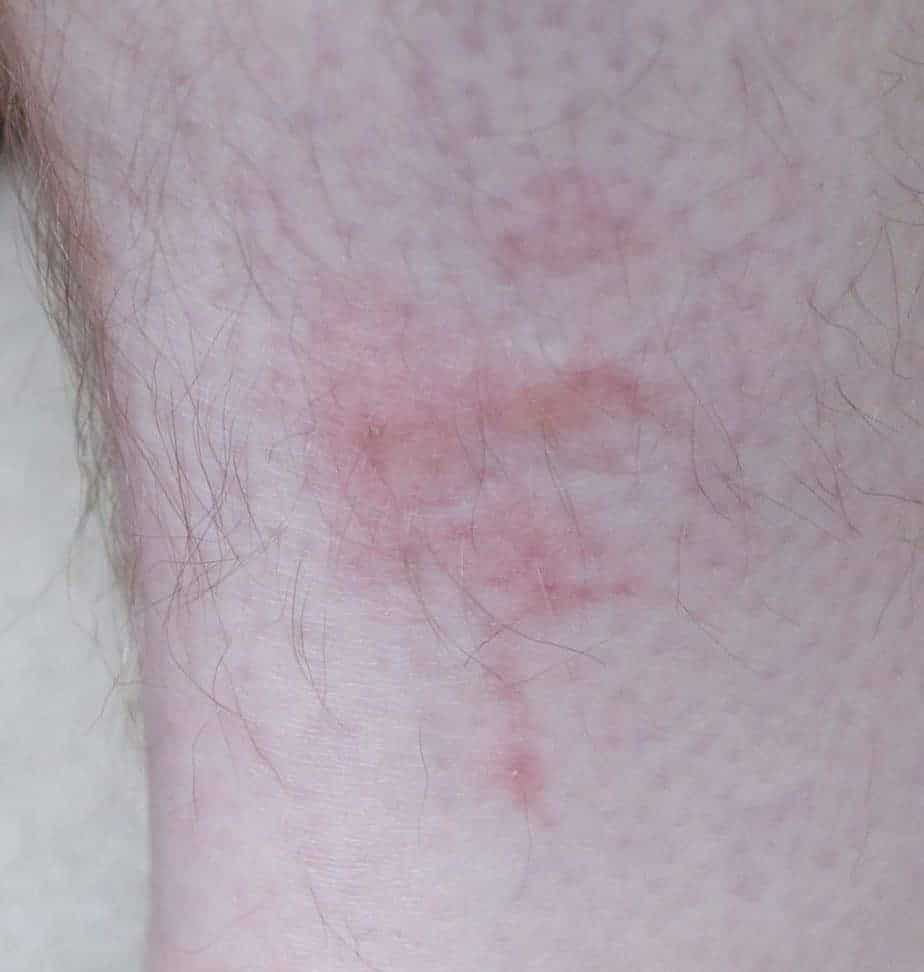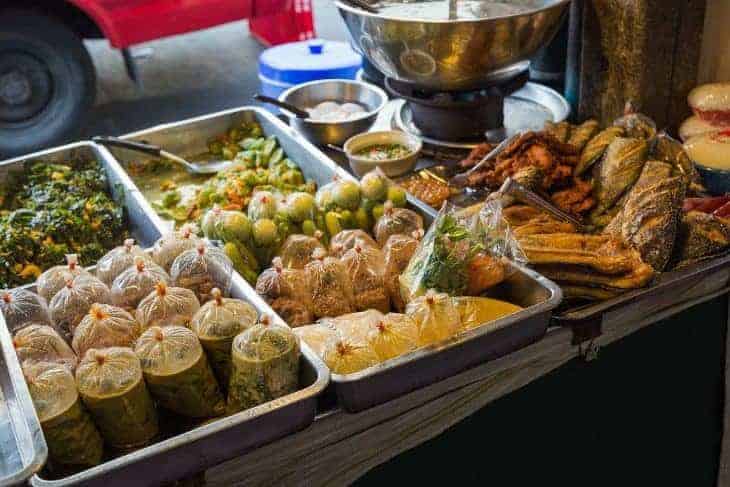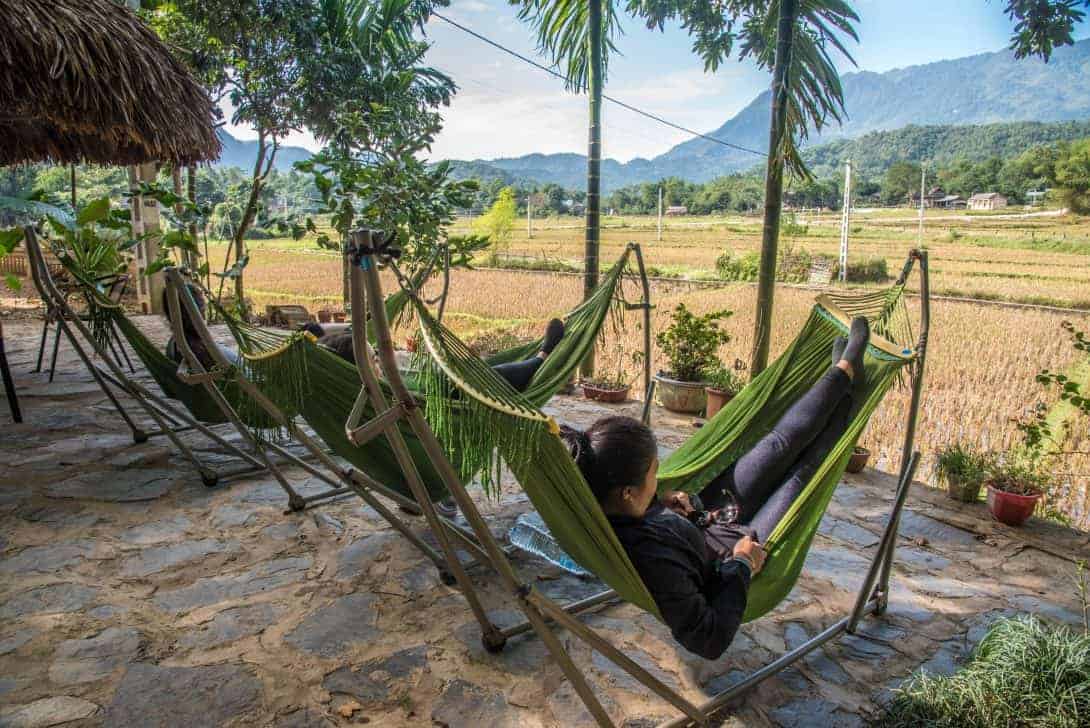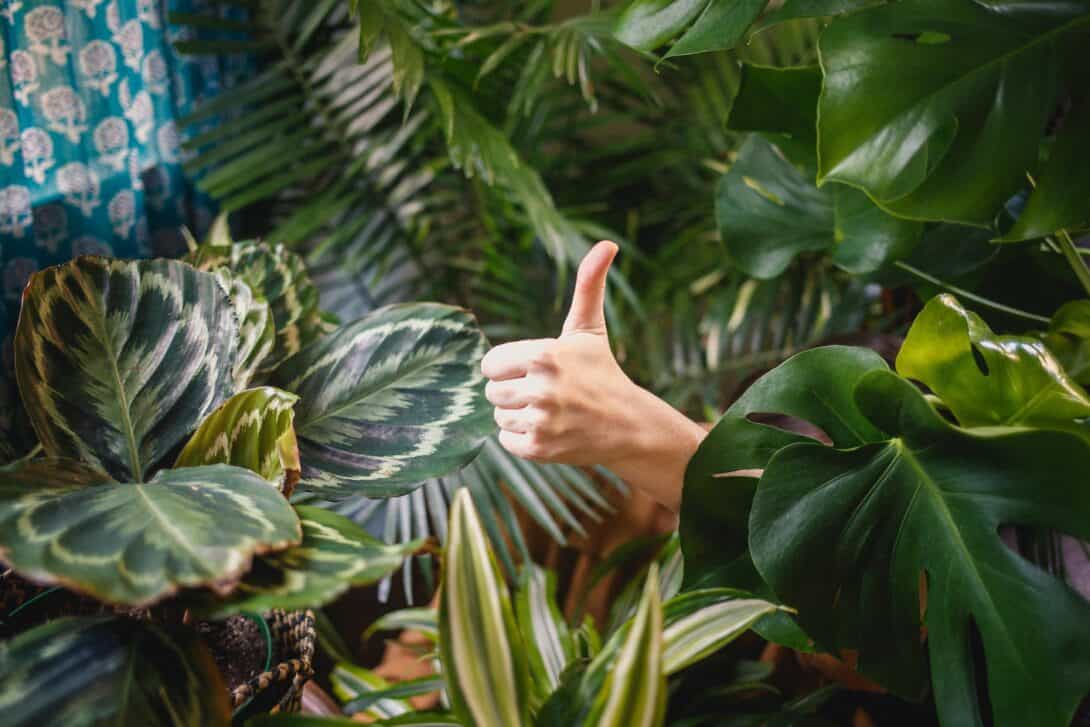The links to Amazon on this page are affiliate links. As an Amazon Associate South East Asia Backpacker earns from qualifying purchases.
Irish backpacker, Aidan Ring, and his girlfriend had to cut their worldwide backpacking trip short in March 2020 due to COVID-19 and are here to remind us that even though this pandemic is over and we’re allowed travel again, there are some tips that you should be following in order to stay healthy on the road!
It sucks to be ill. It’s something everyone can agree on. While some of us are more susceptible to it than others, there is absolutely nobody who would argue that it is fun to be incapacitated and in pain from some ailment or other. Whether it is a fever, nausea, vomiting, dizziness or just generally feeling under the weather, we can all relate to that vehement feeling of ‘can this just be over?!’.
However, becoming sick when backpacking is particularly pernicious – it disrupts your precious trip, prevents you from doing the activities you had been looking forward to for months and makes you feel miserable.

Moreover, when you’re in an unfamiliar country, illness is also more likely and, potentially, more dangerous. While that dizziness is probably nothing more than dehydration due to more exercise than you’ve done in months, it just might be altitude sickness. Your high temperature is most likely harmless but it could still be something more serious relating to the insect bite on your ankle. In addition, if you are in quite a remote area in a developing nation, there is, unfortunately, the danger that you cannot get the help you need or get it as quickly as you need it.
Generally, when in a foreign country, it is always better to err on the side of caution when it comes to your health.
That means that if you do get symptoms of any description, treat them more seriously than you would if you were at home. As always, however, prevention is better than cure and when backpacking, it is far better to just not get sick at all!
So here are 8 tips to give you the best chance of staying strong and healthy no matter where you find yourself!
Tips to Avoid Getting Sick When Travelling
1. Stay hydrated
Absolute basics. Whatever type of trip you’re on, from the party to the jungle, to the party in the jungle, the human body needs water to function. However, when backpacking, we need more water, plain and simple! This is due to the reasons we will go into below…

Physical exertion
When backpacking, we want to dive right in and see and do as much as possible. We hike, we bike, we swim, we dance, we jump for joy to name a few! This is what it’s all about. But as you exercise, your body loses water through sweat which needs to be replaced constantly. Staying hydrated is also key to avoiding cramps and exhaustion. As a general rule, whenever you feel dryness in your mouth, take a drink (A hydration bladder like a Platypus is great for regulating this).
Unfamiliar conditions for your body
In a new locale, you’re taking your body out of its comfort zone and dropping it into unfamiliar territory. You are going to be exposed to different climates, different foodstuffs, different bacteria and different ecosystems with different creatures in them. Everything is different, right down to the molecules in the air. An unexplained dose of diarrhoea (e.g. ‘Delhi Belly’) is a common occurrence from this unfamiliarity and the more water in your system, the better your chances of staying healthy!

Alcohol
When backpacking, booze often comes with the territory as socialising is a huge aspect of the experience! But be aware that alcohol is a toxin. A few cold beers with a random assortment of friendly globe-trotters can be pure bliss, however, drinking to excess has predictable results. An upset stomach, headaches and the fear of having done something regrettable… all poor ways to start your day.

Also, hangovers are often worse in hot climates. Several nights in a row of hedonism and you could be in hot water. Drinking plenty of fluids (hot or cold) means a clearer head and gives your body a much easier time when absorbing the alcohol and purging it from your system. We recommend matching each alcoholic drink with a glass of water for best results.
Clean water may not be readily available where you are, so make it your business to know where you can get some as soon as you arrive. Just to make absolutely sure you don’t get caught short, we recommend bringing water purification tablets, a UV sterilising wand or a filtered water bottle. (Click the link to see our reviews of the best water bottles available.) Our favourite and the one we personally use, is the Grayl Geopress. Read our full review of this product here!

2. Sleep properly
Tip number 2. Sleep is great! Agreed? Good. Now, while it can be tempting to throw your full night’s sleep under the bus at the drop of a hat (or the drop of a bass-line… we’ve all been there), this literally constitutes throwing yourself under the bus along with it.
If you’re the adventurous type, then chances are you’ll notice the difference between when you’re well-rested versus not. Backpacking involves traveling long distances (sometimes overnight), jet-lag, different time zones and strange conditions for your body to adjust to… so you’ll need that sleep when you can get it.
The science says that adults need between 7 and 9 hours of sleep per night. It is when we sleep that essential maintenance of our physical and mental processes is carried out. If you don’t get your sleep, your body’s defences especially the immune system, are drastically reduced. This gives any small infection or slight ailment a chance to get a foothold in your system. Getting enough sleep is a key preventative strategy for supporting overall health.

I, also, personally, take great pleasure in disregarding the perceived social pressure of party time and just crashing out because it’s what I need to do! They call it an ‘Irish Goodbye’, I’m not sure why….
In an ideal world, we would all be getting our 8 hours and following a regular sleeping pattern i.e. falling asleep and getting up at the same time every day. This is an excellent habit to ensure the quality of the sleep you get. However, if you’re backpacking, you may just want to relish the opportunity to break out of your routine. If maintaining a regular sleeping pattern is unworkable, then making sure you sleep enough at strange hours is better than neglecting your sleep.

3. Do NOT get sunburned
Sunburn is not ideal and in fact, the bane of the existence of any backpacker! It is up to all of us to know how sensitive our skin is and what suncream strength is needed as most of us will need some protection in sunny climates. Sunburn can affect your health to varying degrees, from an irritating rash right up to sunstroke.

Severe skin damage due to sunburn is often accompanied by nausea, dizziness, chills and weakness, sometimes consigning you to bed. In other words, it ain’t pretty. If you’re in a tropical place, you can avoid sunburn by considering the following:
Time of Day
Avoid being out and very active at the hottest part of the day i.e. between 13.00 and 16.00. If this is unavoidable, take as many breaks as you need and drink plenty of water.
Re-apply sunscreen
Reapply suncream to any exposed areas of skin every 4 hours or so and always after swimming. Be aware that most brands of suncream are not entirely waterproof or sweat-proof (although Riemann P20 is very good). Reapplication also gives you another chance to target spots you may have missed in the morning!

Clothing
Wear loose-fitting, sporting-style clothes in very hot climates. A sun hat and sunglasses are always a good (and stylish) idea.
Altitude
Of course, it’s not just hot climates where sunburn is a concern. If you’re up in the mountains, the sun can be even more of a threat as there is less of the Earth’s atmosphere to protect you from it. Be sure to follow the advice of local guides by either applying more suncream or else just covering up entirely.
Moisturise
If you do get sunburned (it happens!), we recommend having Aloe Vera gel or some other type of soothing, moisturising cream handy for the burn. While it will not heal the burn, it will dramatically reduce painful blisters and soothe the hot area, thereby reducing healing time.
4. Practice good hygiene
In the wake of the COVID-19 pandemic, the importance of good hygiene has been slapped back into the middle of everyone’s dinner menu… Hygiene has never been more important.

Due to Coronavirus, the better half and I had to cut two-thirds of our trip to South America which we’d been planning for 8 months. We just escaped being stranded in Colombia when all of the borders closed! What a torpedo to the trip ship!

While there is nothing you can do about global pandemics and this total lockdown approach won’t be necessary to deal with most illnesses, it is sobering to be reminded how powerful those invisible particles can be. So make sure that they don’t become a torpedo for your trip!
To keep germs at bay, follow these rules of thumb (for which your thumbs should be thoroughly disinfected please):
- Keep yourself clean – shower frequently.
- Keep your clothes clean – change clothes and do laundry as often as necessary.
- Wash your hands frequently.
- Avoid touching your face (mouth, nose, eyes) with hands that aren’t clean.
- If you are in the vicinity of someone coughing or otherwise looking unwell, move away from them (either they won’t notice or they’ll understand but, of course, we’re not trying to win prizes for being neighbourly, just trying to stay well).
- Drink plenty of hot fluids as this kills many harmful microbes which may be residing in your throat.
- Carry a travel first aid kit – just in case!

As well-being polite to your roommates, general hygiene around the body is crucial when you’re on the road. While you may not catch a life-threatening illness, certain physical areas, such as the hair, genitals and fingernails, are a hotbed for nasty bacteria, microbes and parasitic insects.
5. Insects
This section assumes that you’ve already gone to your GP or Tropical Injection Centre and gotten the vaccines and possible antimalarials that you need for your countries of adventure.

If you are backpacking and have just realised that you’ve forgotten to get the shots or the medication you needed, well then all I can say is…. Seriously, watch out for those creepy crawlies!
Many of them are nocturnal (although not all of them) and are more active at night when it’s cooler and their targets (warm-blooded mammals) are asleep. It is up to you to do your own research about what you need to watch out for in the places you’re visiting / how far you will be from a hospital. But the following are general tips which should help you as well:
Use Insect Repellant / Bug Spray
A repellent containing a high level of DEET (the strongest, insect-repelling chemical on the market) makes you far less attractive to insects that bite.
Mosquitoes are usually the biggest threat to your health in hot countries as they carry dengue and malaria (which can both be life-threatening), but repellent also works for other insects that bite like sandflies, leeches, ticks, fleas and chiggers. Now, don’t go crazy with the stuff… 1 or 2 sprays on your neck and each limb (around your pulse points) should be fine after you rub it around.

Choose what you wear carefully
If you’re heading out in the evening, it is advised that you wear long-sleeved shirts and trousers which are not heavy as this offers protection while also keeping you relatively cool – insects are attracted to the smell of perspiration. Light colours, such as khaki, beige and olive are better as mosquitoes are less attracted to them and they are easier to spot.
Most accommodation that’s not inside a building will provide mosquito nets but be sure to ask about this before booking. You can also buy your own collapsible mosquito net.

Consider where you’re going
If you’re walking through grasslands or woodlands in a tropical wet climate, check yourself for leeches regularly as they secrete a painkiller meaning their bites cannot be felt. If you find yourself in long grass in the southern United States, that’s chigger territory and their bites itch like nothing else. In general, insects prefer damp, shaded areas so try to avoid those. This time, I’m referring more to the hygiene of your environment and the people or objects you may encounter.
Cleanliness is next to Godliness
Check the cleanliness rating of hostels before booking. If you go into a less than clean hostel room, make a decision as to whether you want to stay right away or consider sleeping in your sleeping bag if you have one. If you need to buy a mattress for your campervan or a hat for hiking, get it from a reputable business. Even just picking up a random hat from a hostel lost and found is risky as you don’t where it’s been and what’s laid eggs inside it. I know, I know… Ew! But hey, better just to think about it now than to find yourself living in a campervan full of bed bugs!

Prepare for the worst, hope for the best!
Before going somewhere remote, make sure you get some kind of bite cream or soothing lotion (I have personally found Fucibet to be a game-changer!). There is nothing worse than finding yourself out there in the middle of the jungle (literally or figuratively) covered in irritating bites without any hope of relief.
As difficult as it may be: DO NOT SCRATCH! This makes the pain worse and increases the risk of infection. And, if you start to show any fever symptoms, ACT FAST! High temperature, aches, diarrhoea, nausea, sweats and chills and headaches should all be taken seriously by seeking medical assistance as malaria and dengue fever can both be life-threatening.
6. Eat well
Think of food as your fuel. What you put into your stomach is a fairly obvious consideration regarding sickness. While some backpackers may be nervous about eating street food, due to the high turnover of customers, it can be some of the freshest and healthiest food around! (Indeed some of the most memorable meals I’ve had while travelling have been from street vendors).

However, if you are going for Southeast Asian street food or other non-tourist options, try to make sure that it’s a place where there is an acceptable standard of hygiene and a high turnover of customers i.e. the food hasn’t been sitting there for an undisclosed length of time.
Know your limits when it comes to spicy food or local delicacies. There is no need to impress your travelling companions with your iron stomach! It’s also worth considering the availability and cleanliness of the nearest toilet just in case you start to feel queasy. There is nothing worse than being stuck on a long bus ride with no toilet and stomach issues!

Base your food consumption on context. If you’re in a hot country, fruit keeps you hydrated. If you’re going to be hiking all day, eat more carbs for slow-release energy. If you’re going out on the town later, as much food as possible beforehand is wise for maximum alcohol soakage. Greasy food of low nutritional value is to be avoided.
In general, try not to skip meals as on a cold day in the mountains, your breakfast is what can make or break you. I also personally find that meals offer a nice bit of structure in your day. Indeed, if you’re working up an appetite with adventure activities all day, lunch and dinner can be real highlights to look forward to.

7. Don’t try to do too much
This is a tip which is as much for psychological health as for physical health. If you rush around staying for one or two nights at each hostel, packing every day full of activities, then you’re liable to burn yourself out. Sight-seeing hard every day and partying hard every night is a solid recipe for making yourself sick.

We recommend taking at least 3 nights in every location you want to visit as this will give you two full days in each spot (N.B. That’s a minimum, not a target; I’ve spent weeks in some magical places and still not felt ready to leave).
This tip is based on my own experience of what is needed to actually relax in and fully appreciate a place. Backpacking is a busy lifestyle, laundry, cooking, postcards, printing itineraries, boarding passes and that is just to name a few! Add this in sightseeing, adventure tours and socialising and it gets pretty full.
We recommend taking it easy on yourself and grabbing a couple of extra days here and there (or everywhere) to just relax and reflect on what you’ve done, what you’re doing, and why you’re doing it. Backpacking is likely to be one of the most breathtaking experiences of your life but if you try to squeeze too much out of it, you might squeeze the joy out of it as well. Nobody wants that, so just take your time and add some ‘do nothing days’ to your itinerary.

8. Invest in travel insurance
Okay, so this one won’t actually stop you from getting sick but you still don’t want to forget your travel insurance. (Check out this article for a breakdown of which travel insurance is best for backpackers.)
I know it’s boring and I know there are other things that you’d rather spend your money on but if you get really sick, this could quite literally be a lifesaver. Make sure you are covered!
SafetyWing is the travel insurance of choice for scores of backpackers!
- Subscription style insurance
- Cheap and flexible
- Available after your trip has started

Ready to go backpacking?
Easy, peasy right?! These are all fairly basic tips but they are powerful. We bet that most readers will fall short on at least 1 or 2. Think about it like this… Imagine you’re a virus. Are you going to get away with infecting the well-rested, fully-hydrated, squeaky clean backpacker whose covered in suncream, eats well, and takes their time? No, that human is a fortress and their immune system will kick you out as soon as you set foot in that place!
It’s not all that difficult to stay healthy but you do need a shift in your perspective when you’re travelling. It’s not like at home where you can neglect your health and just curl up in your room, watch Netflix and have tea and toast brought up to you by your lovely mother or housemate. If you’re on your own in a foreign country, it can be miserable!




